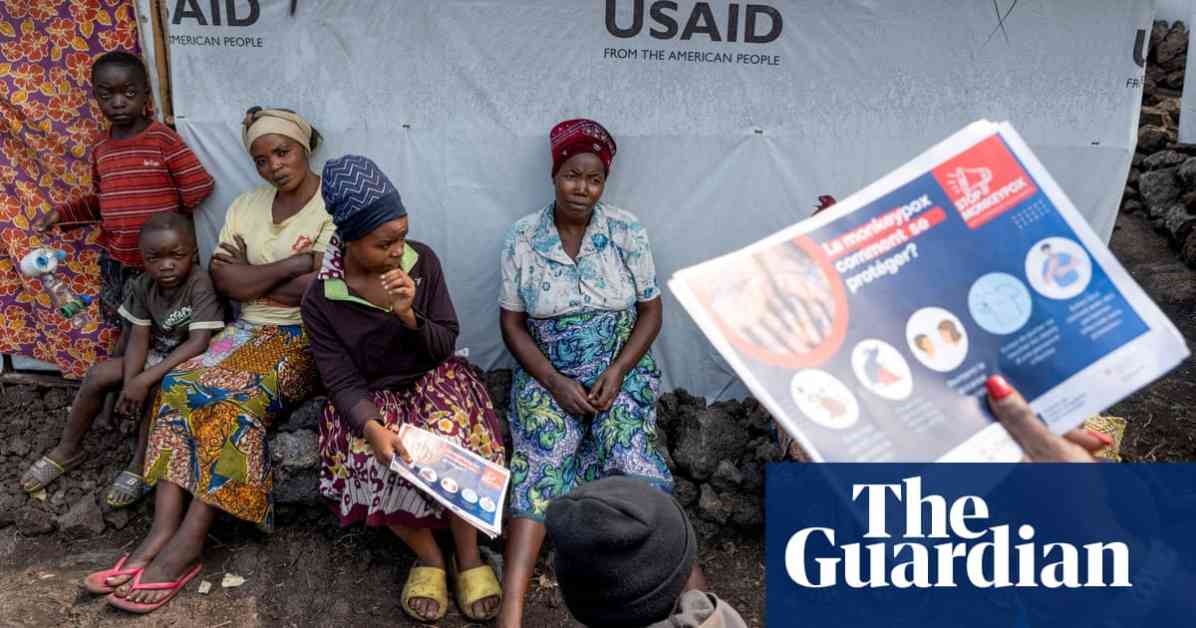Combating MPOX Misinformation: DRC Vaccine Rollout Update
Doctors and nurses in the Democratic Republic of the Congo are not only battling the mpox virus itself but also combating swirling rumors and misinformation. The long-awaited doses of the mpox vaccine have started arriving, signaling the beginning of a crucial phase in the fight against the disease. The challenge now lies in ensuring that people in need will willingly accept the vaccine when the rollout commences next month, as well as educating communities on preventive measures.
Challenges in Vaccine Acceptance
Conspiracy theories surrounding mpox have been spreading throughout the country, with some suggesting that the virus was created by white individuals to sterilize Congolese people through vaccines or as a profit-making scheme by pharmaceutical companies. This misinformation has deep roots in the historical mistrust of medical institutions and treatments stemming from colonial policies. Dr. Junior Mudji, chief of research at Vanga hospital, emphasized the rapid spread of misinformation, stating, “You see this kind of misinformation – and it spreads [more] quickly than the normal information.”
With approximately 26,000 reported cases of mpox in the DRC this year, authorities are working diligently to dispel myths, educate the population on prevention methods, and establish a foundation for vaccine acceptance. The immunization campaign is expected to target frontline health workers and other high-risk groups initially, with a focus on providing information on prevention and self-care to the general public.
Addressing Knowledge Gaps
A recent survey conducted by UNICEF in the DRC revealed that only 56% of the population had heard of mpox, indicating a lack of awareness about the disease. Many individuals had limited knowledge of the symptoms, transmission, and prevention methods of the virus. Disseminating accurate information in a vast country with remote areas and limited communication infrastructure poses a significant challenge. Less than half of the population has access to mobile phones, making it difficult to reach everyone effectively.
Dr. Mudji highlighted the issue of trust between the population and politicians, further complicating efforts to communicate vital information about mpox. He recounted his participation in a radio program addressing mpox, where he encountered numerous inquiries reflecting the public’s thirst for accurate information. Mudji emphasized the importance of dispelling misconceptions and providing factual data to combat misinformation effectively.
Community Engagement and Outreach
In an effort to combat misinformation and promote vaccine acceptance, UNICEF is collaborating with the government to establish “community action cells.” These groups comprise local leaders, religious figures, healthcare workers, educators, and social service providers who are trained to disseminate accurate information about mpox. They engage with communities through various platforms, such as public spaces and household visits, to ensure that correct information reaches the grassroots level.
Sophie Chavanel, a communication expert at UNICEF DRC, emphasized the importance of community-led initiatives in spreading accurate information. By leveraging the trust placed in community members, such as local chiefs and teachers, the dissemination of crucial information becomes more effective. Chavanel highlighted the collaborative nature of the approach, stating, “Ensuring people have the right information goes a long way. It’s very much an exchange: listening to people’s concerns and providing answers back.”
In conclusion, the battle against mpox in the DRC extends beyond medical treatment to encompass the dissemination of accurate information and the promotion of vaccine acceptance. By addressing misinformation, engaging communities, and fostering trust, health authorities aim to curb the spread of the virus and protect the population from the devastating impact of the disease.


















